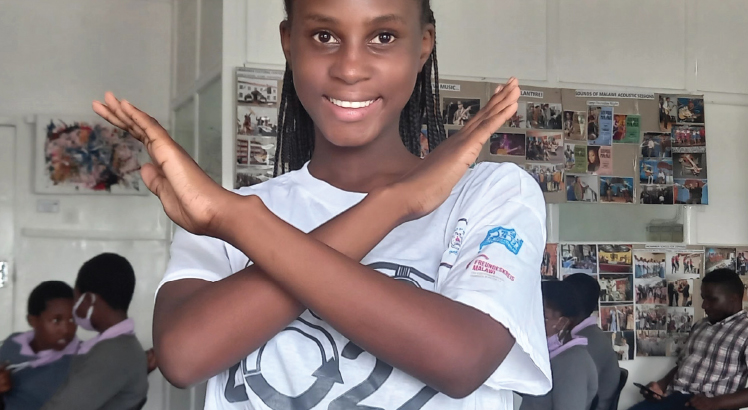March 8 is International Women’s Day and this year’s commemoration offered global communities an opportunity to reflect on different issues to promote the welfare of women.
In Malawi, one pressing issue people reflected on is sanitation and hygiene among girls. At its most severe points, the problem has even threatened academic pursuits of young female learners.
Mangame: Sometimes the embarrassment is too much
In her account, 17-year-old Dorcus Mangame, a former secondary student at Pact Private Secondary School in Blantyre, talks of how embarrassing the situation got at times and how she did not feel like going to school again the second day.
She said: “Culturally, we are a society that does not believe in careless disposal of usable items such sanitary pads.
“In the school setup it is never always convenient to dispose of such things and at times we are left with no option but to be moving around with used pads in our bags.”
In the circumstances, some have given up following the embarrassment that is associated with managing menstrual periods and have ended up dropping out of school. Such eventualities are what youthful girl rights centred movement, Flying Girls Malawi, is trying to fight.
Flying Girls Malawi is under Solomonic Peacock Theatre Company’s theatre education project which aims at giving mentorship in leadership, entrepreneurship, theatre and general life skills to primary and secondary school learners and school leavers.
As part of the International Women’s Day celebrations, which was commemorated under the theme breaking the bias, the movement organised day-long activities at Jacaranda Cultural Centre (JCC) in Blantyre which included lessons in making reusable sanitation pads and motivational talks.
Almost 30 girls and boys underwent the lessons which co-founder of the movement, Lydia Banda, described as crucial in their efforts to nurture the academic ambitions of female learners.
Banda said: “This is a very sensitive issue that we don’t normally talk about. But when this issue is mentioned in relation to education, you will see that it is making some girls to be left out. They don’t go to school as they do not feel safe and comfortable in that state.”
She said her organisation strives to ensure that no girl drops out of school due to lack of hygiene materials such as sanitary pads.
“This is a great opportunity for us as girls to be able to stand up and share these skills with our fellow girls,” she said.
Banda said in addition to being affordable, the reusable pads are also convinient to users.
She said: “Unlike the other types, we don’t have to burn them when disposing of them. Oftentimes, burning the used pads has left our ecosystem bleeding from the emissions that result of this disposal process.”
Cassandra Mpinganjira, a youthful entrepreneur, engaged the young learners in a motivational talk and she advised them to see the skills as an opportunity beyond taking care of their sanitation and hygiene needs.
“At the level that we are in Malawi, one can not just depend on employment to earn an income. The rate of unemployment is very high. It is very important for young people to explore other avenues by learning other skills,” she said.
For Mangame and the 29 other youths who attended the skill coaching session, they will hope that the skills acquired on the day will go beyond the celebration of the International Women’s Day, but contribute to their dignified and better hygienic learning environment.
The post Girls standing up for girls appeared first on The Nation Online.
 Moni Malawi
Moni Malawi 

